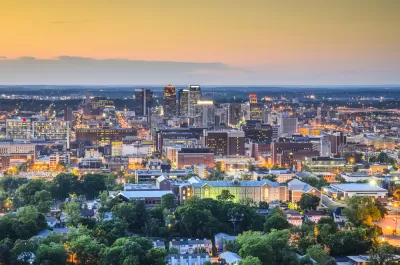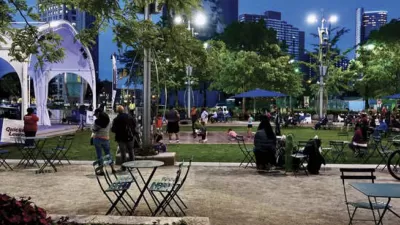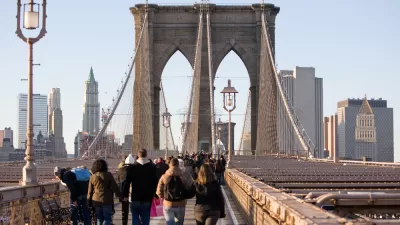Cities around the country are making big plans for economic relief funding from the federal government.

"Across America, cities that were cash-strapped and beleaguered only months ago now find themselves flush with money and ready to spend," writes Griff Witte.
"Researchers who study American cities say leaders are right to think big and creatively, once they’ve filled the gaps created by the pandemic," adds Witte. "The influx of money as part of Biden’s $1.9 trillion American Rescue Plan is unlike any that cities have seen in decades, with relatively few restrictions attached to its use."
The article cites the pandemic financing experiences of Birmingham, Seattle, and St. Louis as evidence of the transformational potential of the economic relief funding, which has come in waves since March 2020, and with varying levels of attention to local budgets. The most recent relief package, the American Rescue Plan, was signed into law by President Joe Biden with $350 billion for state and local aid.
Birmingham, as an example of local response to the relief package, was facing a $63 million budget hole that has since been plugged by $148 million from its portion of that American Rescue Plan total. Witte reports that the Alabama city of 200,000 will prioritize the money for investments in minority-owned businesses, the construction of affordable housing, and support for mental health care.
"It’s a fundamental game-changer for our city," says Birmingham Mayor Randall Woodfin (D) in the article.
FULL STORY: As covid relief money floods in, pandemic-battered cities see a chance to transform

Planetizen Federal Action Tracker
A weekly monitor of how Trump’s orders and actions are impacting planners and planning in America.

Maui's Vacation Rental Debate Turns Ugly
Verbal attacks, misinformation campaigns and fistfights plague a high-stakes debate to convert thousands of vacation rentals into long-term housing.

Restaurant Patios Were a Pandemic Win — Why Were They so Hard to Keep?
Social distancing requirements and changes in travel patterns prompted cities to pilot new uses for street and sidewalk space. Then it got complicated.

In California Battle of Housing vs. Environment, Housing Just Won
A new state law significantly limits the power of CEQA, an environmental review law that served as a powerful tool for blocking new development.

Boulder Eliminates Parking Minimums Citywide
Officials estimate the cost of building a single underground parking space at up to $100,000.

Orange County, Florida Adopts Largest US “Sprawl Repair” Code
The ‘Orange Code’ seeks to rectify decades of sprawl-inducing, car-oriented development.
Urban Design for Planners 1: Software Tools
This six-course series explores essential urban design concepts using open source software and equips planners with the tools they need to participate fully in the urban design process.
Planning for Universal Design
Learn the tools for implementing Universal Design in planning regulations.
Heyer Gruel & Associates PA
JM Goldson LLC
Custer County Colorado
City of Camden Redevelopment Agency
City of Astoria
Transportation Research & Education Center (TREC) at Portland State University
Jefferson Parish Government
Camden Redevelopment Agency
City of Claremont





























